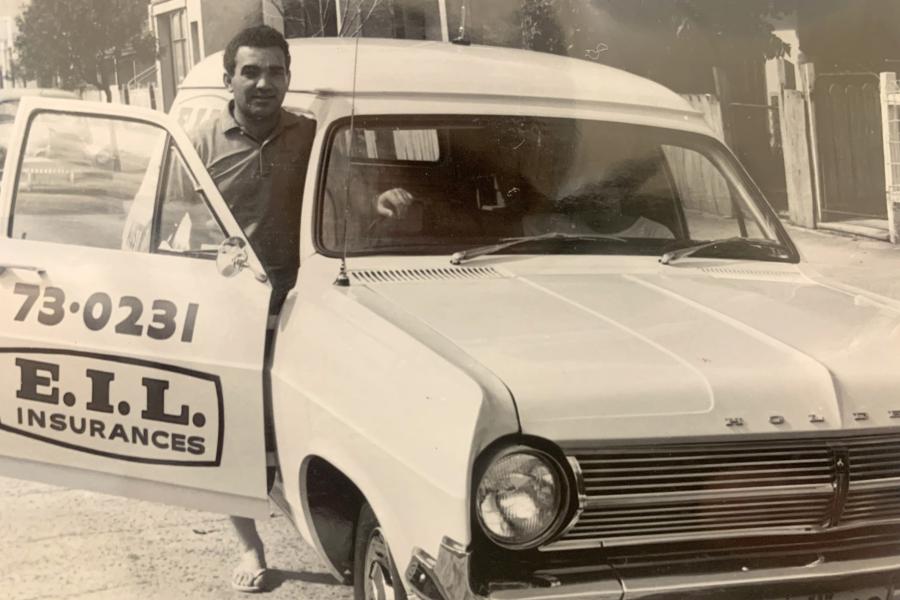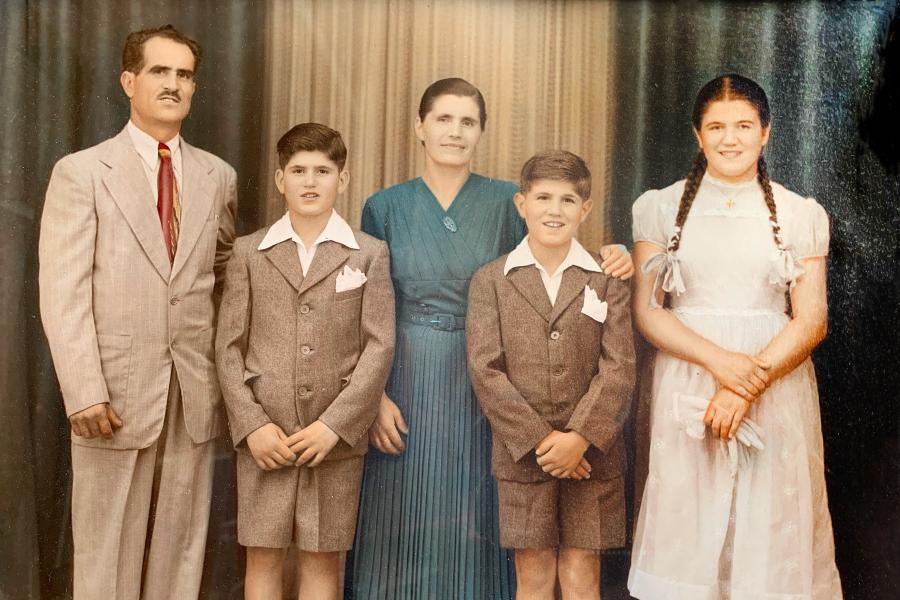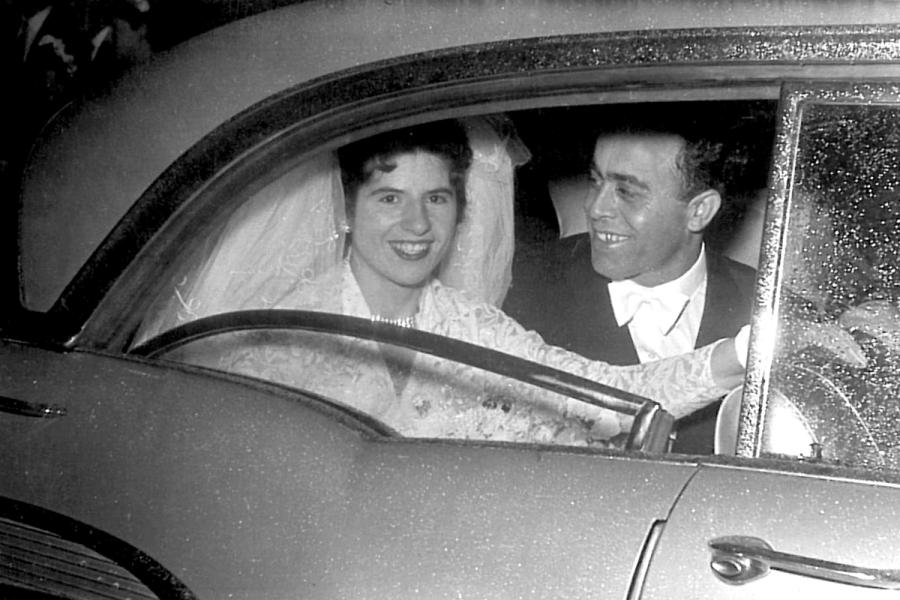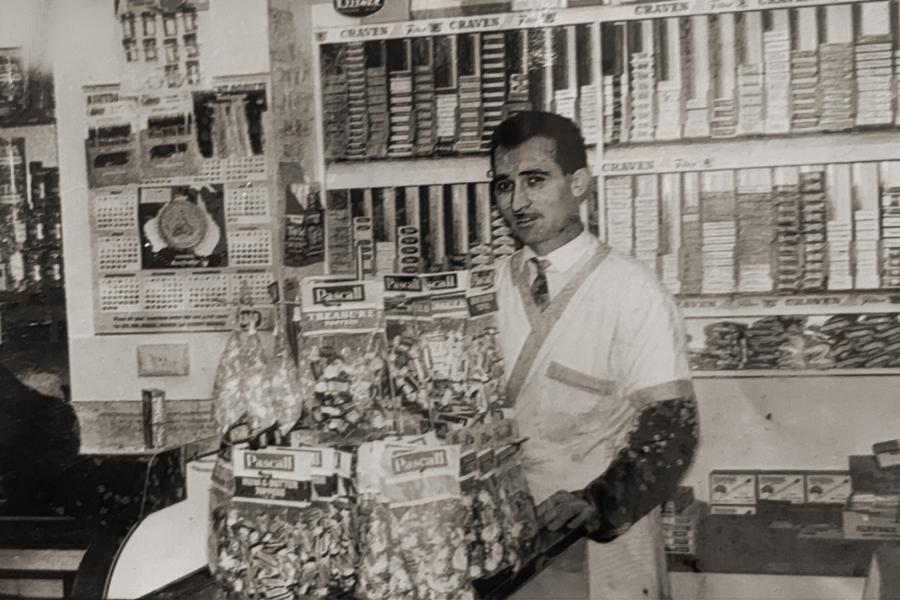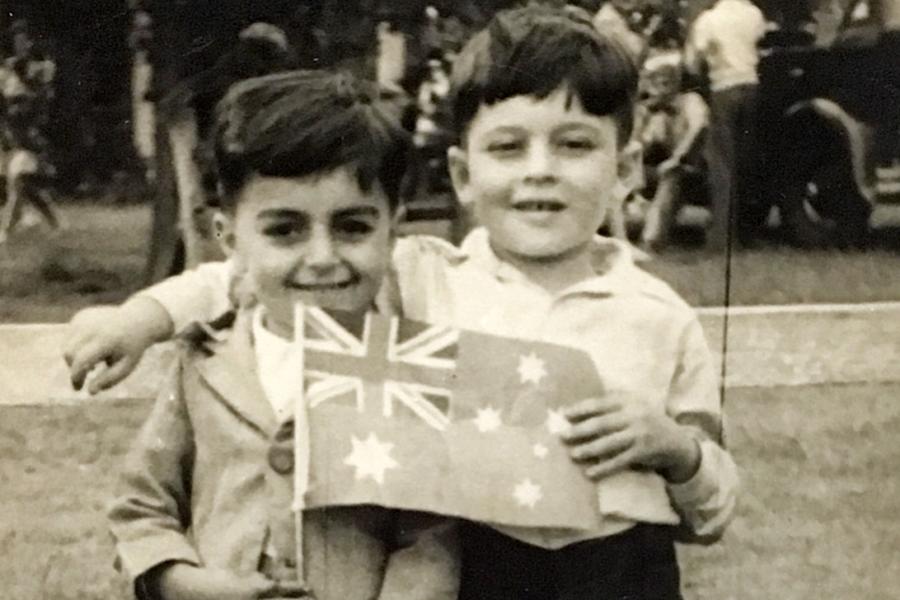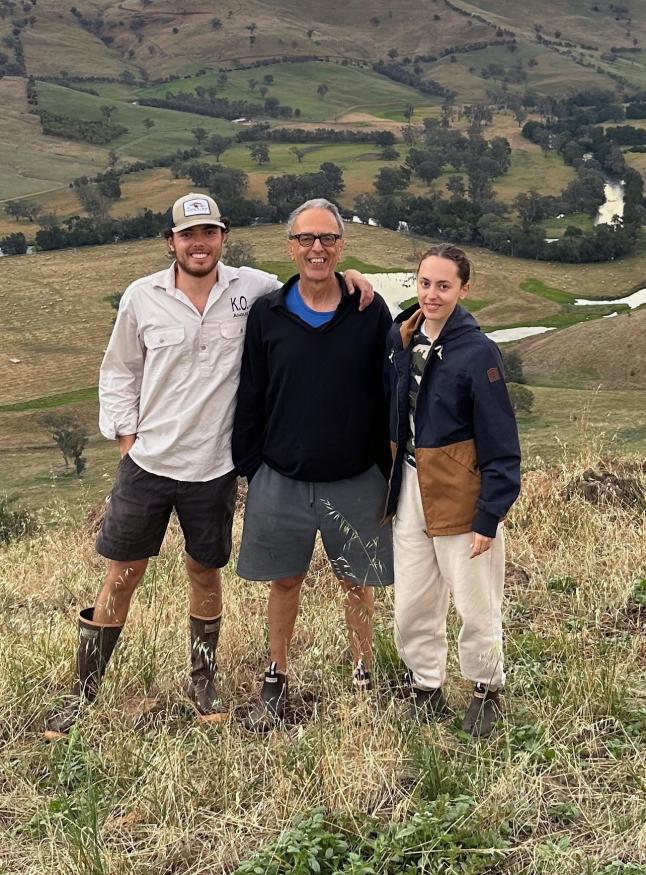

Speaker background
Theo was born into a Greek-Cypriot family in Paddington in 1956. He grew up working alongside his father, Gregorios (‘Gregory’), in the family’s delicatessen/fruit shop. His father and mother came from the same village in Cyprus, and raised three children. The social life of the Onisforou family was experienced with other families from the village, including the Psakis family. Theo spent most of his time outside of school working for his father, which included accompanying him to Paddy’s Markets in Ultimo. He went on to study law and commerce at UNSW before embarking on a highly successful business career.
Interview summary
Theo talks about his parents’ background in Agios Theodoros, Cyprus, how his family came to Sydney, and the social environment that they shared with other expatriate families from the same village. He describes his life working in the family delicatessen/fruit shop, socialising with other Greeks and the educational expectations placed on him by his father. Theo also discusses the difficulties experienced by the women in his family, particularly his mother, Stavrini, who migrated at a young age.
Interview highlights
highlight
Theo describes how his early childhood was shared with his cousins.
Paddington was completely home for us. Travel for us was catching the bus to Circular Quay, or catching the bus to the beach. That was travel for the first five years of my life. And all I know, and I remember, is that when I went to school for the first time I couldn’t speak English. That is how closely we were associated with my relatives. I remember my relatives, the Psakises [Psakis family], their son, one of their sons, Andrew, became a ‘bodgy,’ in the ‘bodgy and widgy’ days [...] and so I was experiencing what was happening by listening to my cousins.
Timecode 12:28 - 13:20
highlight
Theo talks about being teased at school for being a migrant.
I remember, when I went to school, I couldn’t speak English. But then I remember, for the whole of my young life, I was described as a wog, and if kids wanted to be really mean to me, they said to me I was a ‘spaghetti muncher’. And they thought that was a criticism. But that’s because Italian restaurants and spaghetti were not fashionable and almost unknown to a lot of people. So they would criticise me and say right in my face ‘you’re a spaghetti muncher’, as though they were stabbing me in the heart. They would also call me an olive muncher, which was hilarious.
Timecode 18:02 - 18:41
highlight
Theo talks about going to Paddy’s market to help his dad to buy stock.
I used to have to go with my father to Paddy’s Market from five years of age. For one only reason. Not because he wanted my company, but because I had to stay with the vehicle.
Timecode 19:35 - 19:47
highlight
It was because there was so much theft going on at the markets that I needed to sit there, as a five year old, to protect the stuff that was in the back that my father had already bought. And so he’d go in, buy a whole lot of stuff, put it in the back of the ute, and then go back in. I was there as a watcher. And my payment was a bacon and egg roll. I remember it distinctly.
Nick: What time in the morning would you be going there?
Theo: I’d be up at 4 am.
Nick: And this would be once a week, at least?
Theo: No, no, no, three times a week.
Timecode 20:01 - 20:33
highlight
Tell us something about your mother’s experiences.
She married young and came to a foreign place, effectively as a teenager. She had the discomfort of carrying my sister whilst on the boat. It was in a strange place, and she had no immediate family here. [Her mother] was back in Cyprus. Her three sisters and her brother were in Cyprus. She was incredibly close to her brother Theo, and I cannot imagine how hard it must have been. As hard as it was for my father, he’d been to Australia before, and also had the benefit of being fifteen years older than her. She was a child, and I look at my daughters who are now 16 and 22, and I consider them children, and the idea of leaving a place, which had no electricity, and coming to Sydney Australia, must have been just so daunting. The absence of family meant she was incredibly loving to her children, and I say more so than other people who have all of their family around them. So my sisters and I were her absolute focus.
Timecode 43:18 - 44:38
